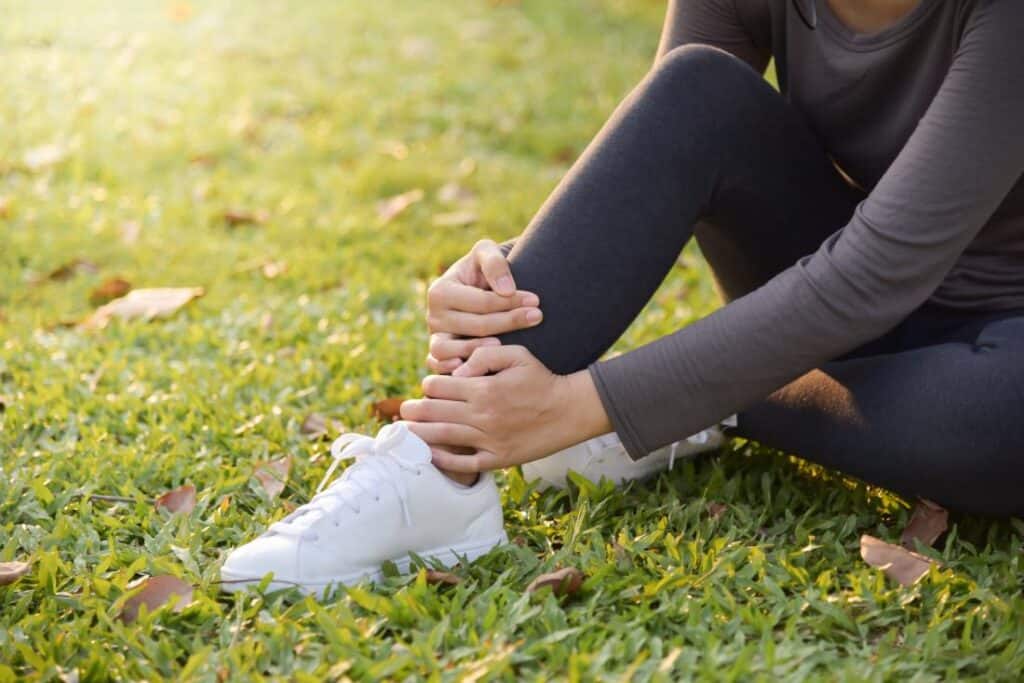The Role Of Acupuncture In Treating Sports Injuries
Do you love playing sports but find yourself sidelined by nagging injuries? Are you tired of relying on medications or surgeries to manage your pain? If so, you may be interested in exploring alternative therapies such as acupuncture. This ancient Chinese technique involves the insertion of fine needles into specific points on the body. It has gained popularity as a safe and effective treatment option for athletes with sports injuries. But what exactly is acupuncture, and how can it help you get back in the game? This blog will delve into the fascinating world of acupuncture and its role in treating sports injuries. We’ll explore the science behind this traditional technique, the types of injuries it can treat, the benefits of acupuncture, and tips for maximizing its effectiveness.
How Acupuncture Works
Acupuncture is based on traditional Chinese medicine principles, which view the body as a complex system of energy channels, or meridians, through which Qi flows. According to this philosophy, illness, and pain occur when there is a disruption in the flow of Qi through the meridians.
Acupuncture points are specific locations on the body where the Qi can be accessed and manipulated. These points are believed to be located along the meridians and are often associated with specific organs or systems in the body.
During an acupuncture treatment, thin needles are inserted into these points to stimulate the flow of Qi and restore balance to the body. The needles are left in place for a period of time, usually 20-30 minutes, and may be manipulated to stimulate the flow of Qi further.
The physiological mechanisms of acupuncture are not fully understood, but research has shown that acupuncture can stimulate the release of endorphins, the body’s natural painkillers, and other neurotransmitters. It can also improve circulation, reduce inflammation, and stimulate the immune system.
Acupuncture has also been shown to activate the parasympathetic nervous system, promoting relaxation and reducing stress. This may be particularly beneficial for athletes, who often experience high stress and anxiety related to their sport.
In addition, acupuncture may help to increase the range of motion and flexibility, which can be important for athletes looking to improve their performance and prevent further injuries.
Types of Sports Injuries Treated by Acupuncture
Acupuncture can be used to treat a wide variety of sports injuries, including:
- Sprains and strains: These injuries involve damage to the ligaments or muscles and can cause pain, swelling, and reduced range of motion. Acupuncture can help to reduce inflammation and pain, promote healing, and improve the range of motion.
- Tendinitis: Tendinitis is an inflammation of the tendons, often caused by overuse. Acupuncture can help to reduce pain and inflammation, promote healing, and improve the range of motion.
- Shin splints: Shin splints are common injuries among runners and involve pain and inflammation along the shinbone. Acupuncture can help to reduce pain and inflammation, promote healing, and improve the range of motion.
- Tennis elbow and golfer’s elbow: These injuries involve inflammation of the tendons in the elbow and can cause pain and reduced grip strength. Acupuncture can help to reduce pain and inflammation, promote healing, and improve grip strength.

5. Low back pain: Low back pain is a common complaint among athletes, especially those participating in sports requiring repetitive motions or lifting. Acupuncture can help to reduce pain and inflammation, promote healing, and improve the range of motion.
Acupuncture treatment for sports injuries may involve a combination of acupuncture points and other techniques, such as cupping, moxibustion, and electrical stimulation. Treatment may be customized to the athlete’s specific needs and used with other treatments, such as physical therapy or medication.
The Benefits of Acupuncture for Sports Injuries
Acupuncture offers several benefits for treating sports injuries, including:
- Non-invasive: Acupuncture is a non-invasive treatment option that does not require medication or surgery. This can be particularly beneficial for athletes looking to avoid more invasive treatments.
- Safe: Acupuncture is generally considered safe when performed by a qualified practitioner. The risk of serious side effects is low, especially compared to other treatment options.
- Effective: Acupuncture treats various sports injuries, including chronic or difficult-to-treat, with other methods.
- Individualized: Acupuncture treatment is customized to the specific needs of the athlete, taking into account their injury, overall health, and other factors. This personalized approach can improve outcomes and reduce the risk of complications.
- Holistic: Acupuncture is a holistic treatment that can address the physical symptoms of a sports injury and the underlying causes, such as stress or poor technique.
Acupuncture has several advantages compared to other sports injury treatments, such as medication, physical therapy, or surgery. For example, acupuncture can be used with other treatments, reducing the need for medication or surgery. It also has fewer side effects than some medications and does not require medical equipment or devices.
Like any medical treatment, acupuncture does have potential side effects. These may include minor bruising or bleeding at the needle insertion site, dizziness, or temporary soreness. However, these side effects are typically mild and short-lived. To minimize the risk of side effects, choosing a qualified acupuncture practitioner who follows safe and hygienic practices is essential.
Acupuncture offers a safe, effective, and individualized treatment option for athletes with sports injuries. With its ability to address an injury’s physical and emotional aspects, acupuncture can be a valuable addition to a comprehensive treatment plan for athletes looking to improve their performance and quality of life.
Preparing for an Acupuncture Treatment for Sports Injuries

Suppose you are considering acupuncture as a treatment option for a sports injury. In that case, there are several steps you can take to prepare for your appointment and maximize the effectiveness of your treatment.
- Research your practitioner: Choosing a licensed acupuncturist with experience treating sports injuries is essential. You can ask for referrals from your primary care provider or search online for licensed acupuncturists.
- Wear comfortable clothing: Acupuncture treatment may involve removing clothing to access the acupuncture points, so it is important to wear comfortable, loose-fitting clothing that can easily be rolled up or removed.
- Avoid caffeine and alcohol: It is best to avoid caffeine and alcohol for a few hours before your acupuncture appointment, as these substances can affect your body’s response to the treatment.
- Eat a light meal: Eating a light meal before your appointment is recommended, as acupuncture can affect your digestion, and having some food in your system is essential.
5. Communicate with your acupuncturist: Let your acupuncturist know about your injury, any medications you are taking, and any concerns you may have. This can help your acupuncturist tailor the treatment to your specific needs.
During your acupuncture treatment, your acupuncturist will insert fine needles into specific points on your body. You may feel slightly prick or tingling, but the treatment should not be painful. You will lie still for 20-30 minutes while the needles remain in place and may feel relaxed or sleepy.
To maximize the effectiveness of your acupuncture treatment, it is essential to follow any instructions or recommendations provided by your acupuncturist. This may include avoiding certain activities or foods, practicing relaxation techniques, or engaging in specific exercises or stretches. Attending all recommended appointments is essential to achieve the best results.
Preparing for an acupuncture treatment for sports injuries involves choosing a licensed practitioner, wearing comfortable clothing, avoiding caffeine and alcohol, eating a light meal, and communicating with your acupuncturist. By following these steps and working closely with your acupuncturist, you can maximize the effectiveness of your treatment and achieve the best possible outcomes for your sports injury.
Is Acupuncture Safe for Athletes With Sports Injuries?
Acupuncture is generally safe for athletes with sports injuries when performed by a licensed and trained acupuncturist. The needles used in acupuncture are extremely thin and do not cause significant tissue damage, making the procedure minimally invasive. Furthermore, the risk of infection is very low since the needles are sterile and used only once.
Ensuring that the acupuncturist you choose has experience treating sports injuries and is licensed by a recognized regulatory body is essential. Additionally, athletes should inform their acupuncturists about any pre-existing medical conditions or medications they may be taking to avoid potential complications. With these precautions, acupuncture can be a safe and effective treatment option for athletes with sports injuries.
Are There Any Side Effects Associated With Acupuncture for Sports Injuries?
While acupuncture is generally safe, some minor side effects can be associated with the treatment. The most common side effects are mild and may include bruising, soreness, or slight bleeding at the insertion site of the needle. Other side effects can include temporary dizziness, nausea, or fatigue.
In rare cases, more serious side effects can occur, such as infections or organ injuries, although these are extremely rare. To minimize the risk of side effects, choosing a licensed and experienced acupuncturist who follows proper sterilization procedures for needles and maintains a clean and safe treatment environment is essential. Additionally, patients should inform their acupuncturist about any pre-existing medical conditions or medications they may be taking to avoid any potential complications.
Acupuncture is a safe and effective treatment option for athletes with sports injuries. By stimulating specific points in the body, acupuncture can help alleviate pain, reduce inflammation, and promote healing. Whether dealing with a sprain, strain, or chronic injury, acupuncture can be a valuable addition to your treatment plan. By working closely with a licensed acupuncturist and following their recommendations, you can achieve optimal results and return to the game faster. So if you’re looking for a natural and non-invasive way to manage your sports injury, consider acupuncture.

